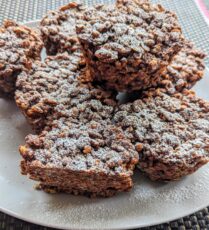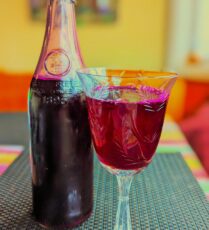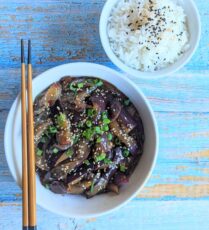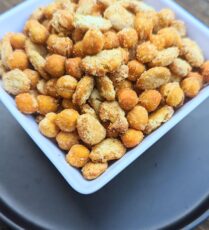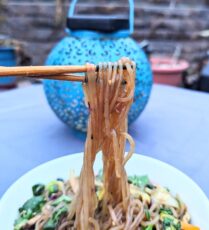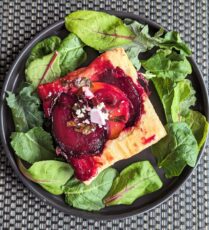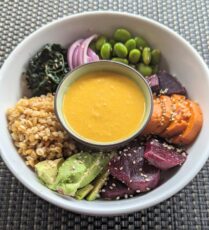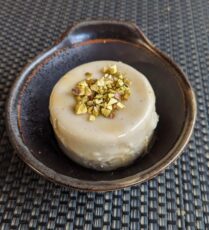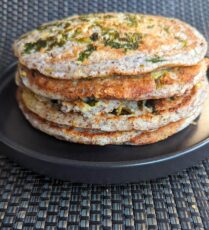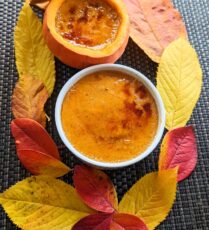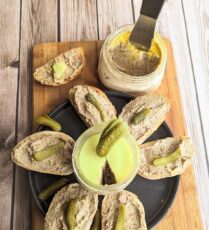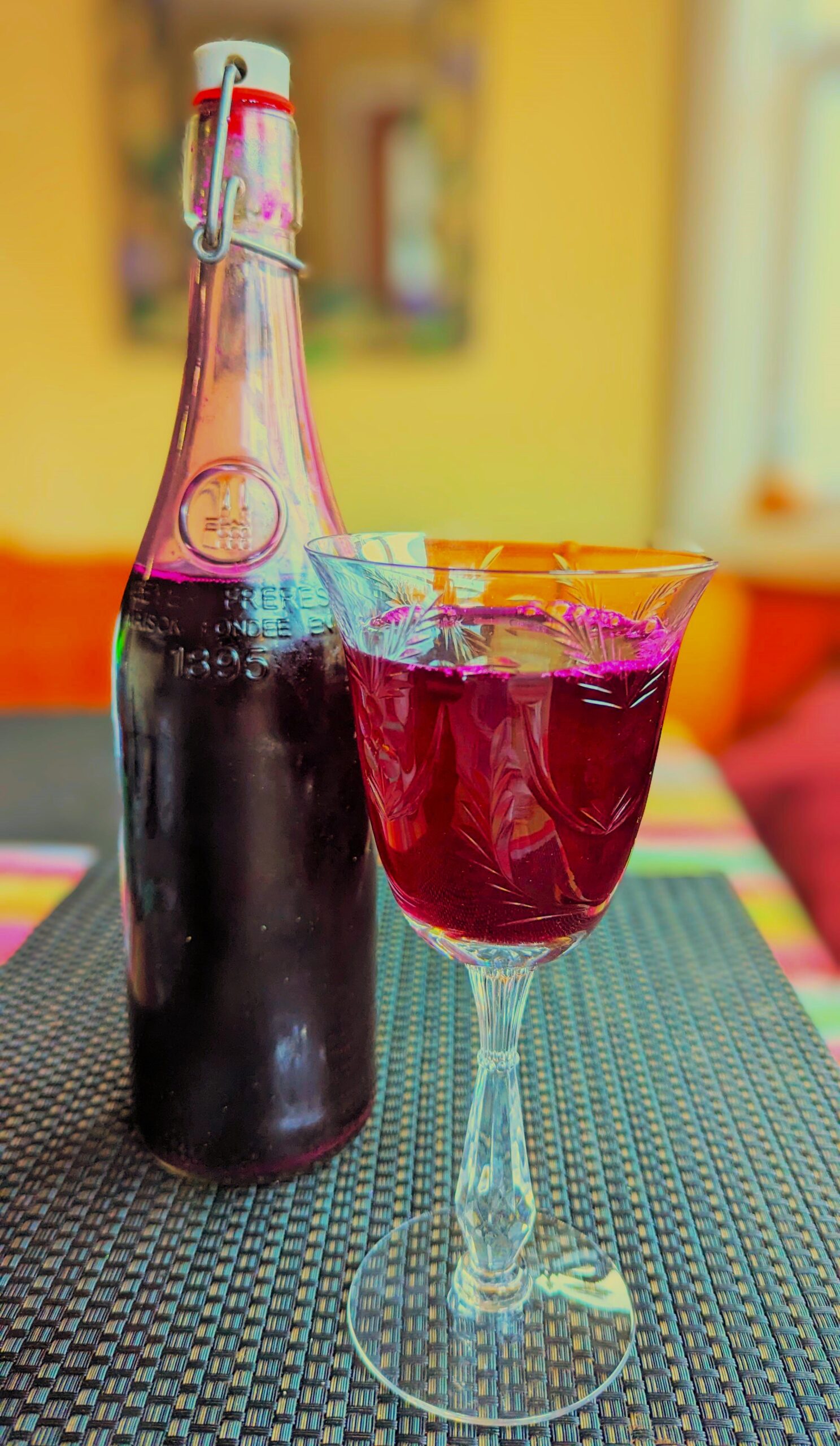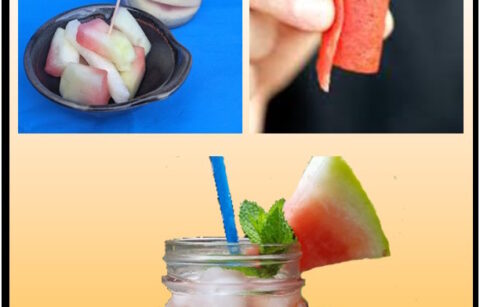Probiotic rich beverages have gained in popularity as more and more people discover first hand their health benefits. Whether it is kombucha, kefir drinks, probiotic seltzers, tepache, we love them. So, what exactly are probiotics? They are living organisms that make up the good bacteria in our gut, a.k.a. microbiome. No wonder, they are regularly made and consumed by centenarians who live in blue zones. By the way, if you have never heard of blue zones, I recommend watching a great documentary on Netflix called: Live to 100: Secrets of the Blue Zones.
Why drink Beet Kvass?
Nature color codes everything for us. Beets are a natural blood tonic, and liver cleanser. It is no surprise that they help build red blood cells. When you cook them, you destroy some of the vitamin C, but when you ferment them, you make the nutrients more bio-available. Kvass also has cancer fighting properties, helps kidney stones, and support overall immune function.
Fermentation process
When you combine fresh vegetables with a little salt, something magical happens. The salt kills harmful bacteria and promotes the growth of good gut bacteria like lactobacilli. This is what happens with sauerkraut, and any other fermented vegetables.
What does it tastes like?
Lightly fizzy, not the type of heavy duty carbonation you get in sodas or flavored mineral water, that makes you burp because of the added carbon dioxide. Kvass is a touch salty, tangy, but slightly sweet too. That’s the beauty of natural fermentation, you get a complex set of flavors but all pretty mild. Another cool thing is that it also looks like wine, so if you don’t drink alcohol, you can join your friends without them ever knowing you are not drinking!
Spice your probiotic drink
Because the drink is on the mild side, you can add more flavors in the form of fresh ginger, lemon peels, pineapple, or fresh turmeric root. You could also add some cabbage, carrots, mint. Try one additional flavor at a time until you find your favorite one.
2nd fermentation
When you first batch is done after a week, you can reuse the beets and other vegetables to make a second batch. You can also use the beet in salads, soup, stews, spreads…
How to drink Kvass
Start with a 1/4 cup added to a glass of water. Can be taken before a meal, or as a digestive help, after a heavy meal. I like to drink some for an afternoon pick me up.
Other ways to use Beet Kvass
Add probiotics to other drinks like bloody Mary, or sangria. Don’t stop with drinks, add to cold soups like gazpacho, or salad dressings
PRO TIPS
Here are a few recommendations to make sure the fermentation process is perfect every time.
Rinse you quart jar under boiling water to sterilize it.
Use filtered water because chlorine will prevent fermentation from happening.
Only use sea salt, Himalayan salt, or Celtic salt. Never use table or refined salt because it contains iodine and this will interfere with the fermentation process.
Use a wooden spoon to stir the salt until dissolved.
Use a close fitting lid.
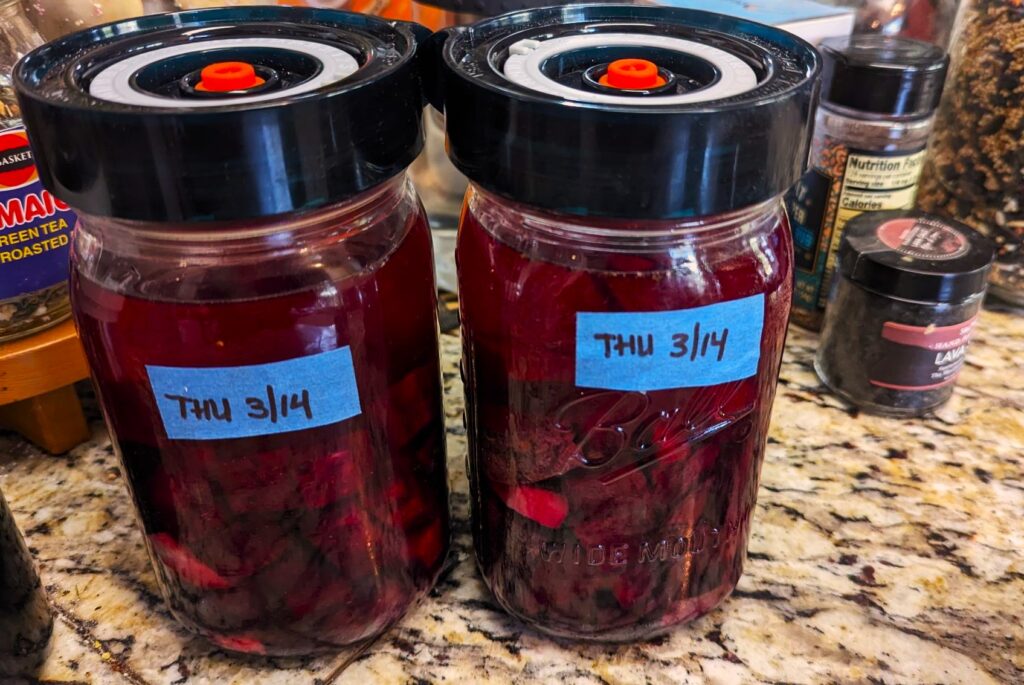
Write the date on the lid using some tape.
Refrigerate for a week.

Beet Kvass Probiotic Drink
Equipment
- mason jars
Ingredients
- 3 diced medium beets
- 2 tbsp chopped fresh ginger
- 4 cups filtered water (not chlorinated)
- 1 1/2 tsp sea salt, pink Himalayan salt or Celtic salt
Instructions
Prepare the beets
- Quickly rinse the beets and remove the stem. Leave the skin. Dice the beets.
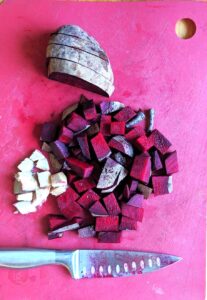
- Roughly chop the fresh ginger.
- Sterilize the quart mason jars and lids by rinsing them in boiling water.
- Stir 1.5 tsp of sea salt to 4 cups of filtered water until dissolved. Add the diced beets and chopped ginger.
- Cover with the salted filtered water. Leave at least 1 inch of head space in the jars. Close the jars with a lid.
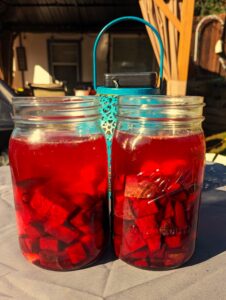
- Let the jars ferment for 1 week, in a warm place but not in direct sunlight. Release the gas that will have formed after 3-4 days. Shake the jar every day.
- Bubbles will form on the surface. Taste and if it is lightly fizzy and tangy, it is ready.
- Pour the probiotic liquid into a clean bottle and refrigerate for a week.


